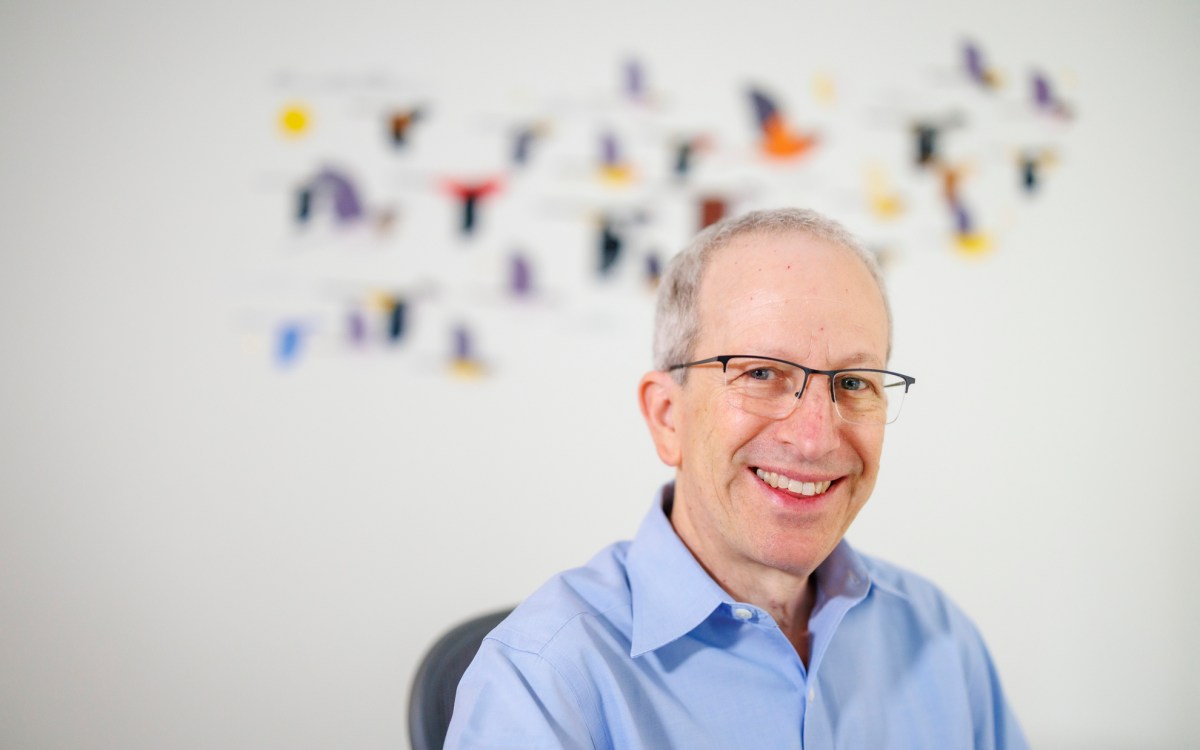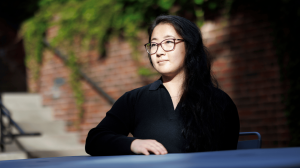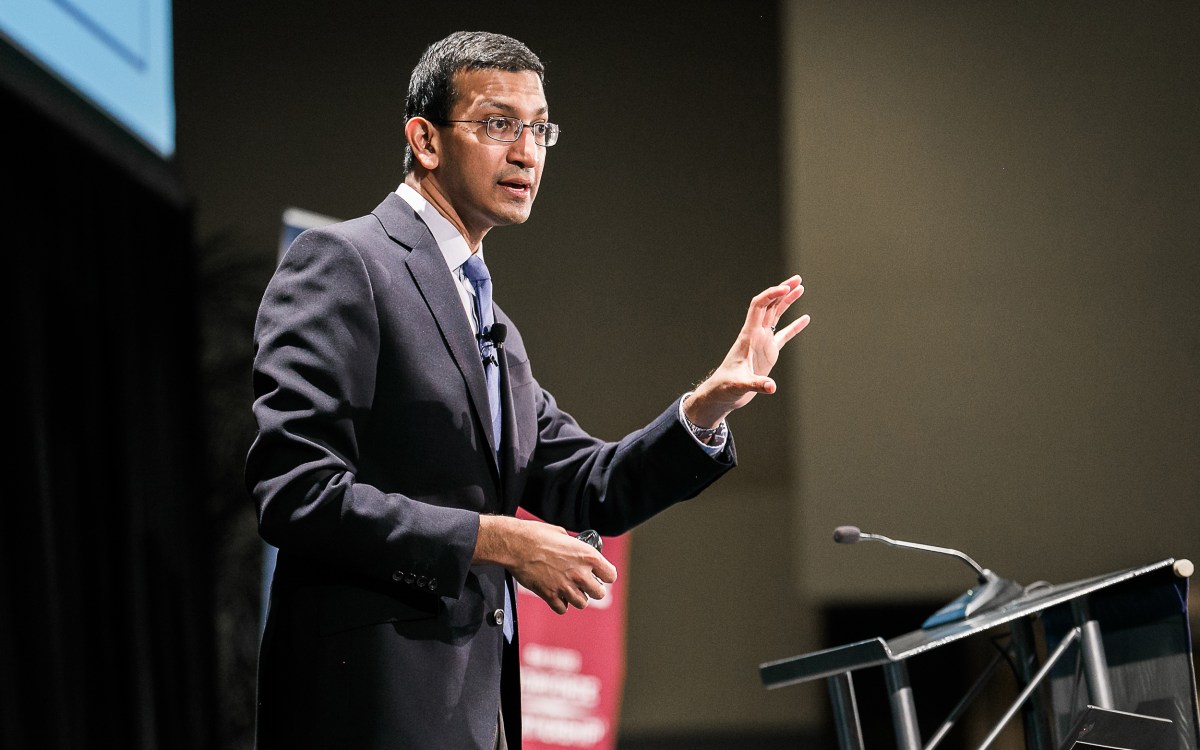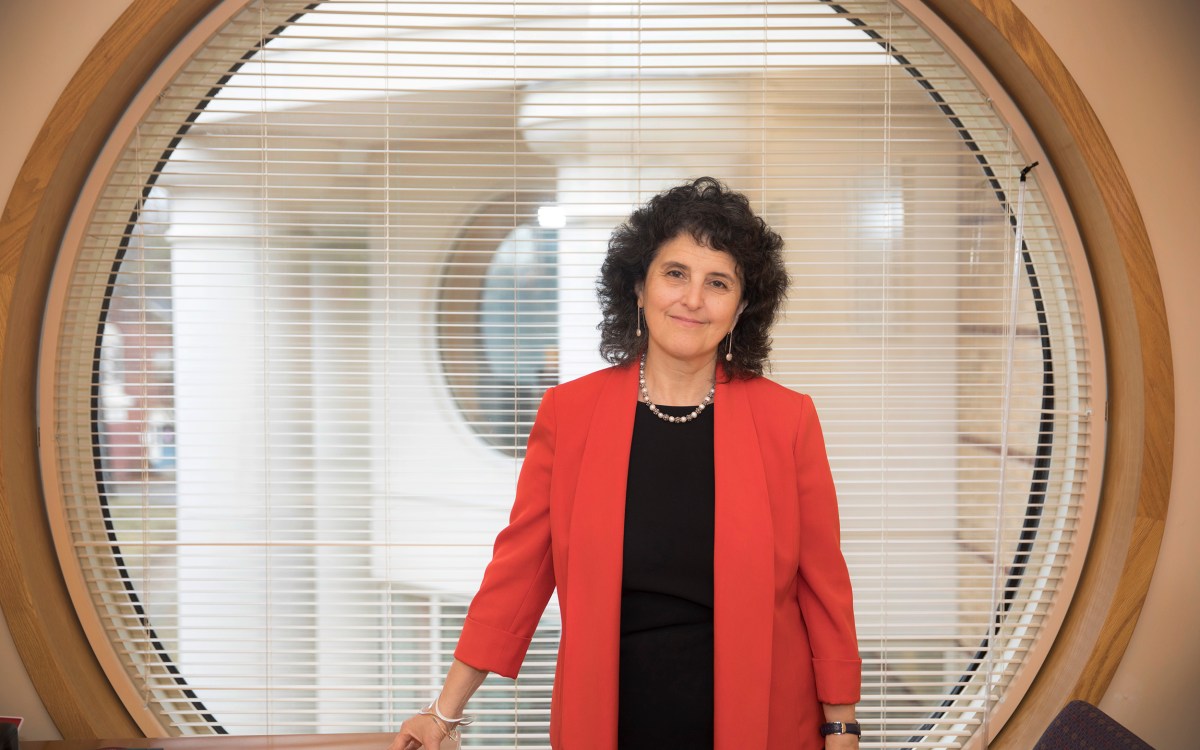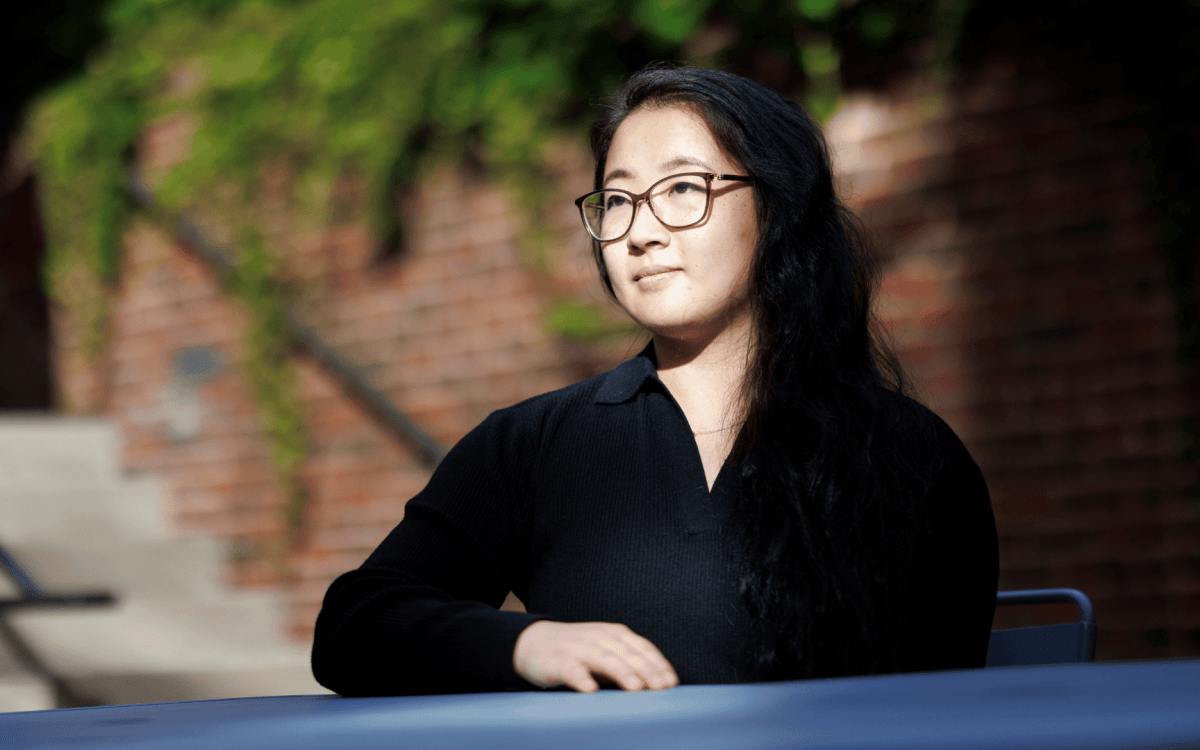
Harvard and the University of Michigan have formed two partnerships designed to encourage economic opportunity in struggling Detroit and to fight the national scourge of opioid addiction.
iStock photo
Harvard, U. of Michigan to tackle social ills
Two universities launch partnerships to boost Detroit opportunity, reduce opioid crisis
Harvard and the University of Michigan have formed two partnerships designed to encourage economic opportunity in Detroit and to fight the national scourge of opioid addiction.
The partnerships were announced Wednesday (Sept. 12) as Harvard President Lawrence Bacow headed to Michigan to speak at the Detroit Homecoming, a yearly gathering that brings high-profile former city residents back to reconnect with their roots and to network with other Detroiters. Bacow grew up in nearby Pontiac.
“I am delighted that Harvard will be partnering with one of the country’s leading public research universities to make progress on issues that are among the most pressing of our time,” Bacow said. “Our teams will bring research-led insights to the issues of economic mobility and the opioid crisis, and, working with Mayor [Mike] Duggan and his team, seek to translate those insights into action.”
University of Michigan President Mark Schlissel said the collaboration brings together expertise from the two educational institutions and the community to help make a difference on key societal issues.
“Our new partnership seeks to devise the best solutions to two of society’s biggest challenges,” Schlissel said. “By uniting community partners, policymakers, and top researchers in a sustained collaboration, we are creating a critical mass of expertise that has tremendous potential to achieve lasting positive impact.”
The Detroit-focused partnership pairs the Equality of Opportunity Project — led by Harvard’s William A. Ackman Professor of Public Economics Raj Chetty, Harvard economics Professor Nathaniel Hendren, and Brown University Associate Professor John Friedman — with the University of Michigan’s Poverty Solutions initiative, the city of Detroit, and community partners. It seeks to create interventions that can improve the livelihoods of low-income Detroit residents.
The project expands current efforts by the initiative, led by H. Luke Shaefer, with the Harvard researchers applying expertise in economic opportunity research, advanced computing, and statistical methodology to provide fresh perspectives on the challenges of stagnant economic mobility and intractable poverty.
The effort draws from the Equality of Opportunity Project’s work examining opportunity in America and the shifting forces that determine whether ordinary Americans succeed or fail economically. Using large sets of de-identified administrative data, the project has illustrated the decline of American economic mobility, the impact of race on children’s economic prospects, and other challenges to achieving the American Dream.
Along the way, Chetty and colleagues have explored some of the most enduring beliefs and myths about American society, from the effectiveness of social programs intended to raise children out of poverty to the relative “stickiness” of childhood socio-economic status.
David Williams, Equality of Opportunity Project’s policy director and a former senior adviser to Duggan, said he expects the Harvard contribution to have a two-pronged impact. First, Harvard will bring its data-analysis resources to support and enhance efforts by the city and the University of Michigan. Second, he said, project researchers will collaborate with their colleagues at the University of Michigan to use the project’s big-data approach and statistical methodology to determine where children are succeeding or failing on a neighborhood scale. They will pair that information with local data sets to understand those neighborhoods better, allowing researchers to find, for example, places where children are succeeding despite a lack of resources.
Those neighborhoods can then be studied to understand what systems and methods are working and to derive lessons that can be applied elsewhere. The effort also will allow researchers to identify the areas struggling the most, Williams said.
“We’ll look at interventions large and small that will have the biggest impact,” he added. “We really feel like we have some unique resources that we can bring to the table.”
The two universities’ efforts will build on neighborhood revitalization, housing affordability, and youth-focused initiatives already announced and being implemented by Duggan’s office.
“We are trying to build a comeback that includes all Detroiters, and we welcome the support of these two prestigious institutions in that effort,” Duggan said.
The second partnership pairs the Harvard T.H. Chan School of Public Health with the Michigan Opioid Prescribing Engagement Network in work to find scalable solutions to the epidemic. The opioid-directed effort will begin with joint policy summits in Massachusetts and Michigan that will bring together experts from public health, medicine, government, criminal justice, and other fields to examine, share, and build on approaches that have proven successful.
“The current opioid epidemic is the deadliest drug crisis in American history, and Massachusetts has one of the nation’s highest death rates from opioid overdoses,” said Harvard Chan School Dean Michelle Williams. “We look forward to working with policymakers, experts, and our colleagues at the University of Michigan on measurable, practical solutions to address this public health emergency.”
At Michigan, Chad Brummett, director of the network and an associate professor of anesthesiology, will head the effort, while at Harvard, the work will be led by Mary Bassett, the Francois-Xavier Bagnoud (FXB) Professor of Health and Human Rights and director of the Harvard Chan School’s FXB Center for Health and Human Rights.
Bassett, former commissioner of New York City’s Department of Health and Mental Hygiene, is among many Harvard affiliates committed to fighting the addiction crisis, which has reached historic highs.
“There’s the immediate problem of ensuring people don’t die of opioid overdoses, which, at least in New York City and across the country, have hit historic levels,” Bassett said. “New York City has never documented as many overdose fatalities as it has in 2017, and that’s true across the country.”
Bassett said that many disciplines have to be involved in the search for solutions. Recent approaches, for example, have shifted from those emphasizing criminal-justice cases to health-based approaches emphasizing treatment and rehabilitation. Increased prevention will require input from many different areas of expertise to be successful.
“Prevention, obviously, is the most enduring way out of this epidemic,” Bassett said. “It will require more, certainly, than just a criminal-justice response, but it will also require more than a purely clinical response.”
